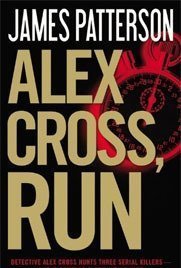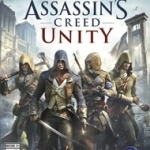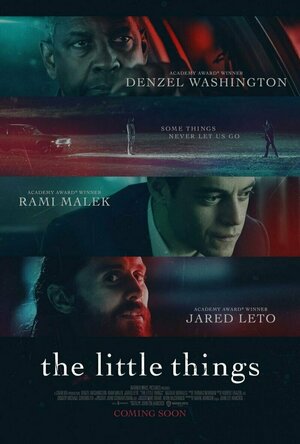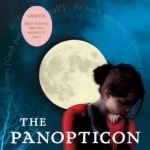
Knot That Pucker (Knotty Puckers, #3)
Cassie Lein and Bre Rose
Book
Being the deaf little sister of the Knotty Krakens’ star player means I know two things: Hockey...
Reverse Harem Romance Fated Mates Omegaverse
Gareth von Kallenbach (980 KP) rated The Little Things (2021) in Movies
Jan 26, 2021
The script was reportedly written over thirty years ago by John Lee Hancock who has gone on to write, direct, and produce multiple films of note in the decades since he first created the screenplay.
The film is set in 1990 and involves a cop named Joe Deacon (Denzel Washington), who travels from his small California town to Los Angeles to get information on a suspect.
Joe has a history in L.A as he used to be a homicide detective for the department which combined with his meltdown while obsessing over a murder case has caused him more than a bit of notoriety.
Jim Baxter (Remi Malik) is the hotshot new Detective who has been leading the investigation into a string of unsolved murders. Joe accompanies Jim to a new crime scene and notes some similarities with his unsolved case. Joe takes some personal days and begins to do some legwork on the case and reports his findings to Jim which causes Joe to remember aspects of what drove him to his marital, health, and career issues as he is unable and unwilling to let the case drop.
When a prime suspect no longer fits into the picture; suspicions fall on a crime enthusiast named Albert (Jared Leto) who seems to check all the boxes but is also taking delight in winding up Joe which causes Jim to question if he is a viable suspect or just an oddball who gets off on crimes and winding up the cops but does not actually commit any offenses.
As the delicate dance unfolds between the characters the fact that this is an era before Cell Phones, DNA tests, GPS, and elaborate computer networks helps underscore the plight of the officers. If the film was set in a modern setting much of the suspense and uncertainty of the story and characters would be moot thanks to technology.
As the game of cat and mouse unfolds between the characters Jim learns how a person can become obsessed with a case and Joe attempts to mentor him from the success and failures of his life which includes some gray areas.
Aside from the strong performances and engaging story what makes “The Little Things” work is that it is a film that does not take the Hollywood fallbacks of extended gunfights, car chases, and over the top action scenes. What it does show is real and flawed characters that are doing what they think are right and does not attempt to wrap things up nice and tidy.
The film uses the element of doubt to not only drive the story but the actions of the characters which underscores that an element of uncertainty exists in some investigations and in with the resources available to police at the time; things are not always certain.
The film will appear in cinemas and HBO Max and is a compelling and well-crafted thriller that is not to be missed.
4.5 stars out of 5

Alex Cross, Run (Alex Cross, #20)
Book
Kill Alex Cross was "Patterson at the top of his game" (Washington Post). Alex Cross, Run is even...

Learn English with Lingo Arcade
Education and Games
App
"It's amazing how quickly you will see results!" Start learning how to read, speak, and write...

Ultimate Button Box
Lifestyle and Entertainment
App
***AWESOME LOUD SOUNDS AND SWEET LOOKING GRAPHICS!!! *** -> TOP 10 WORLDWIDE APP! -> # FEATURED ON...
Bob Mann (459 KP) rated Jumanji: The Next Level (2019) in Movies
Dec 27, 2019
This was also a film that raked in a HUGE return at the box office, getting close to the billion dollar number on its $90 million budget. During the spring of 2018, this was an almost permanent resident at the multiplexes (until "The Greatest Showman" and "Mamma Mia: Here We Go Again" took over the residence for the rest of the year!) . A sequel was inevitable
We rejoin the cast some time after the events of the first film, and the geeky teenage lovers - Spencer and Bethany - are trying, unsuccessfully, to carry on their long distance relationship while at separate colleges. Spencer is struggling mentally; lacking in confidence and momentum and desperate to feel like 'Smoulder' Bravestone again.
On returning to his home town for the holidays, Spencer fixes the shattered game. But the console is unpredictable and when the game sucks people into Jumanji this time it's not just Spencer and two of his friends that go in, but Spencer's Grandpa Eddie (Danny DeVito) and his old friend Milo (Danny Glover).
When they get there though, things have changed and the mission is a different one. A "next level" indeed!
This is very much 'much of the same' from the first film. Yes, there's a different backdrop with desert and mountain 'levels' to play through. But the same fun, with exploding avatars and dangerous cake, is to be had again. The script team had to do something different here, and they did that by mixing up the avatars (including a surprising equine player) and throwing in the 'pensioners' to the mix. There is new fun to be mined here from the now nimble-again Eddie and the slow-talking and laconic Milo never quite getting to the point in time.
The stars were all persuaded back for another ride. The four avatar leads (Dwayne Johnson, Karen Gillan, Jack Black and Kevin Hart) all return, together with the young teens (Alex Wolff, Morgan Turner, Ser'Darius Blain and Madison Iseman). Nick Jonas and his older real-life player Colin Hanks are back. Even Nigel "Welcome to Jumanji" Billingsley (Rhys Darby) returns, this time swapping his jeep for a plane.
The newcomers to the cast are also welcome. Glover and DeVito are at their cranky best, and introduce a genuinely touching moment into the film. And a new avatar - Ming Fleetfoot - is fabulous in the form of Awkwafina, so brilliant in this year's "The Farewell".
There's not much more to say on this. If you liked the original, you'll enjoy this one too. Many of the same jokes are trotted out again. The villain (here Rory McCann) is as forgettable as in the first film. It's not breaking any records in terms of originality, but the producers won't mind about that as long as it drags the crowds in again. At the time of writing it has made $320K on its $125K budget, so that seems to be working.
Jake Kasdan is again at the helm. But I really hope enough is enough, and they leave it at this. The mid-credits scene might suggest though that greed is going to dictate a Jumanji 4 (or 5 in some people's books). The returns, I fear, from the franchise will be ever diminishing from this point forwards.
(For the full graphical review go here - https://bob-the-movie-man.com/2019/12/27/one-manns-movies-film-review-jumanji-the-next-level-2019/ .)

Stack the Countries®
Education and Games
App
- Featured on the TODAY show! - Editor's Choice Award! - Children's Technology Review - "Stack the...
Eilidh G Clark (177 KP) rated The Panopticon in Books
May 13, 2017
At the beginning of the novel, the fifteen-year old Anais is governed by the state. In contemporary British society, a child under the age of sixteen, regardless of her social situation is, by law, governed by an adult/s. Anais has lived her life in the care system with the exception of a short period in which she lived with an adopted mother. It is for this reason that she is able to see society from outside of the family unit. By creating the motherless child, Fagan presents Anais as the ‘other’ from both a societal perspective- ‘communities dinnae like no-ones,’ and from the viewpoint of the protagonist, ‘What they really want is me dead,’ (TP, p.23). Without a family, and through a lack of legitimate information regarding her birth mother, Anais believes that she was created in a lab:
I’M AN experiment. I always have been, It’s a given, a liberty, a fact. They watch me. Not just in school or social-work reviews, courts or police cells – they watch everywhere. […] They’re there when I stare too long or too clearly, without flinching. […] They watch me, I know it, and I can’t find anywhere any more – where they can’t see, (TP, Prologue).
Note that in the above quotation, the protagonist describes her assumed identity as a ‘liberty’. Liberty, in this case, means freedom from the oppressive nature of the family. Although Anais desires the nurturing aspect of the family, ‘I just want my mum,’ (Tp, p.269), her lack of family exposes her to the nature of contemporary society as a constant monitoring of civilians. In the above quotation, the repetition of ‘they’ suggests that she feels outside of the norm. The most important aspect of the above quote however, is that it is told from the protagonist’s thoughts. While Fagan gives Anais a certain amount of autonomy through both the first-person narrator, and the vernacular, the reliability of the narrator is increased by presenting the characters inner thoughts. While this limited autonomy is important, full autonomy is restricted by age. Bever suggests that ‘the capacity for individuals to become autonomous seems radically dependent on the contingent historical circumstances and societies into which they are born. Anais’ awareness of herself as the ‘other’ allows her an insight into the oppressive role of society, which is normally hindered in childhood due to the role of the family and it’s teaching of norms and values.
The sense of otherness can also be looked at in regard to Scotland and its role within the UK. The UK is a family of four countries under one state. Regardless of Scotland’s devolution, it has still to comply with a large amount of UK policies. Scotland has different values and goals to that of the UK making it ‘other’. With a different cultural identity to its neighbours, many Scottish citizens are seeking independence to protect its dwindling identity, whilst for others, independence is political.
Anais’ awareness of social control causes her a feeling of shrinking. This, according to her social workers is an identity problem:
Fifty odd moves, three different names, born in a nuthouse to a nobody that was never seen again. Identity problem? I dinnae have an identity problem – I dinnae have an identity, (TP, p.99).
Anais’ reaction in the above statement describes her lack of knowledge of her ancestry. I would argue that her identity is forced upon her from the fifty-one times that she has moved home, the care system, the solitary time in which she was adopted, the relationships she has had - both female and male, her friends but more importantly, from the unreliable account of her birth from the monk in the metal institution. The lack of family does not alter the fact that she is alive, and that all the fragments of her past make up an identity. For Anais, ‘Families are overrated […] ‘I umnay fooled. Not by families,’(TP, p.63-64). Like Anais, Scotland’s identity is ambiguous. Independence will allow Scotland political autonomy, however, within a global economy, Scotland still has limited autonomy. As culturally ‘other’ however, Scotland has already achieved autonomy with or without a state through its language, its people and its traditions.
Fagan demonstrates the difficulty of total autonomy though Anais and the birthday game, a game in which she creates her own identity. When she turns sixteen years of age, Anais is free from societal care and flees from her imprisonment, ‘I am Frances Jones from Paris. I am not a face on a missing-person poster, I am not a number or a statistic in a file. I have no-one watching me, […] I−begin today,’ (TP, p.323-324). ‘I’ suggests singularity and is still opposite to ‘them’ or ‘we’. Autonomy is therefore, ambiguous; Anais is still living within the same system under a false identity, she is therefore, segregated from everyone that she knows. Moreover, by changing Anais’ name to a name that ‘means freedom.’ (TP, p.323), Fagan is pointing out the difference between freedom and autonomy. Freedom is an emotive word, and there are two concepts of freedom – freedom from, which in Anais’ situation means freedom from the system of observation. Freedom to, however, is more problematic as Anais can never be free from the neoliberal system of rules and law – as Scotland would see in the case of independence. I would therefore conclude that Anais/Scotland has always has limited autonomy through cultural identity and history. I believe autonomy can only reside within the system through cultural and individual imagination and not out with it.
What does this mean for Scotland? If Scotland is part of the global community, can it become an autonomous nation? Is there a solution or should Anais/Scotland accept that cultural autonomy is imagined or self-contained. Can a collective identity and imagination change the political system? Finally, can culture survive without independence?
Bibliography
Crupp, Tyler, ‘Autonomy and Contemporary Political Theory’, in Encyclopaedia of Political Theory, ed. Mark Bevor (London: Sage Publications, 2010)
Fagan, Jenni, The Panopticon (London: Windmill Books, 2013), p.6.
Windmill Books. (2013). Granta Best Young British Novelist Jenni Fagan, . accessed 22 November 2015. Published on Apr 16, 2013

Assassin's Creed Unity
Video Game
Paris, 1789 - The French Revolution turns a once-magnificent city into a place of terror and chaos....



